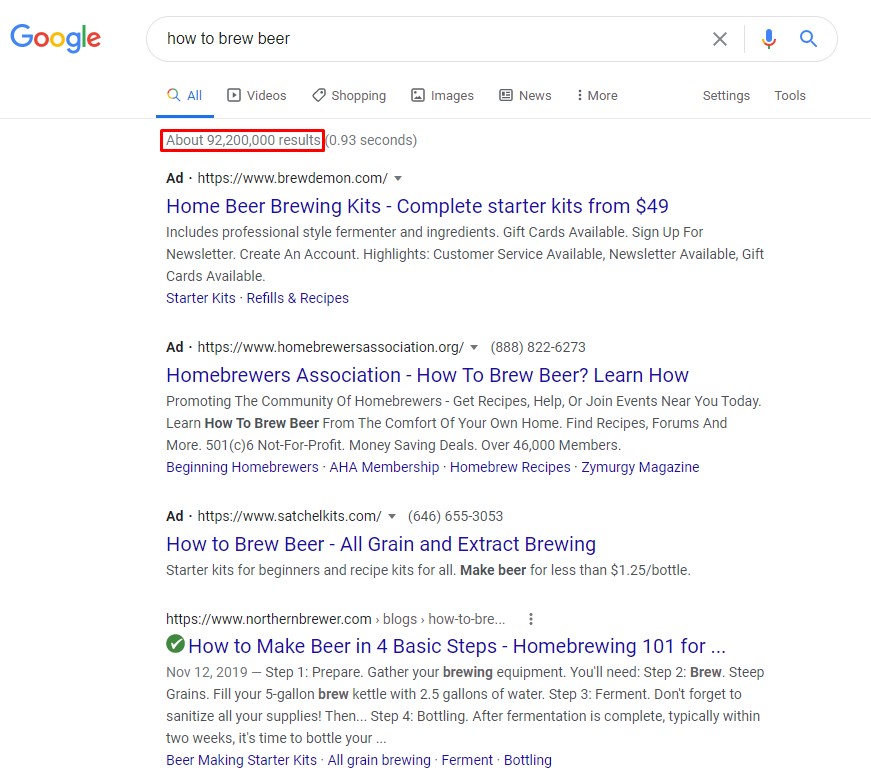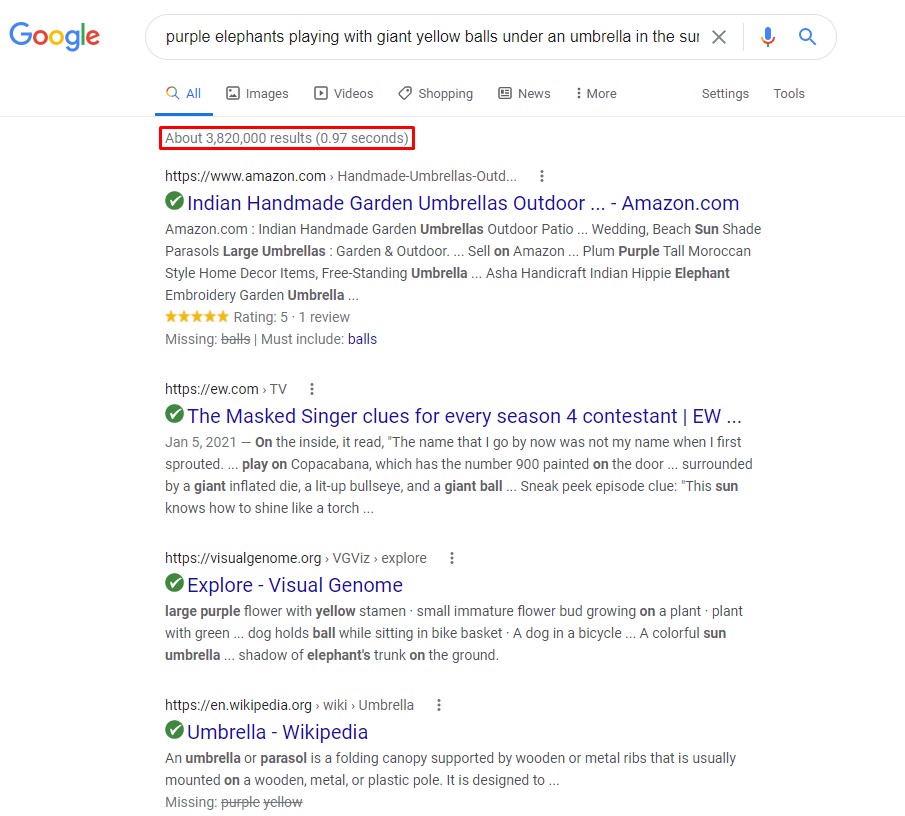An SEO myth that drives me absolutely crazy:
“The more results that Google shows in its search index for a keyword phrase, the more difficult it is to rank for that keyword.”

As Michael Scott would say, “NOO GOD! NO. GOD. PLEASE. NO. NO!!! NO!!! NOOOOOO!!!”

It does not matter if there are 100,000 results in the Google index or 100,000,000. It tells you absolutely nothing about how difficult it will be to rank for that keyword.
Let me tell you why.
You are not competing with 100,000 web pages or 100 million web pages. No matter what the search term is, you are competing with the top 10 ranking pages. Really the top 3 because that is where most of the traffic goes.
If you can beat the page ranked #3, then #4 through 100 million do not matter.
Think of it like running a marathon. If you are fast enough to finish 3rd in the race, it does not matter if you are running a local marathon with 1,000 runners or if you are running The Marine Corps Marathon in D.C. with over 30,000 participants. You are still going to finish 3rd.
It also does not tell you how many pages are “trying to rank for that term” as many people state it does. Look at the screenshot I included about the elephants. Do you really think that 3.8 million pages are trying to rank for that?




